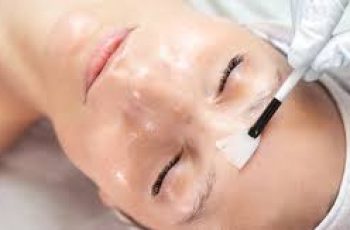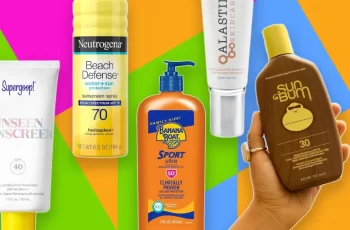
How Do Moisturizers Work?
Have you ever wondered about the meaning of the word “moisturizer” or the effects moisturizers have on your face? Lean about different types of moisturizers here. If you want to find the best moisturizer for your Baumann Skin Type, then you must first take the skin type quiz so we can tell you the best moisturizer to improve your skin’s health.
If you would like a more in-depth review of moisturizers, see Ch. 43 in Baumann’s Cosmetic Dermatology[1].
Moisturizers add water to the skin and help the skin’s natural barrier to function properly.
Hydrating the skin with the right moisturizer can also help to reduce inflammation.
The best moisturizer for you will depend on your Baumann Skin Type.
Different moisturizing ingredients are better for dry and oily skin types.
What Is the Best Moisturizer for Me?
As a dermatologist, I get asked this question a lot. There are many things I consider when choosing the best moisturizer for my patients. Moisturizers do so much more than hydrate the skin. Moisturizers affect how the other skincare products in the skincare routine work by influencing stability, chemical structure, and penetration of other ingredients. Moisturizers can contain anti-inflammatory, antioxidant and skin lightening ingredients. The fatty acids in the moisturizer can affect how well these anti-inflammatory and skin-lightening ingredients work. Because of this- you need to choose a moisturizer that is right for your Baumann Skin Type and that works well with the other skincare products in your regimen.
What Is a Moisturizer?
A moisturizer is a skincare product that is applied to the face or body to increase skin hydration. There is no difference in the definition of “moisturizing” and “hydrating”: both words mean increasing the amount of water in the skin.
Why Does the Amount of Water in the Skin Matter?
Most cellular processes require water. Enzymes that require water help the skin desquamate, make cellular components, and function in cellular protection and repair. Lack of water disturbs normal cellular processes, leading to inflammation and aging. This is why dehydration is the first problem to be solved in any skincare routine, making moisturizers one of the most important skincare products to use.
What Does Moisturizer Do For Your Face And Body?
Moisturizers increase the amount of water in your skin. Water in the skin is found inside the keratinocyte skin cells (intracellular water), and in between keratinocytes (intercellular water). Moisturizers help increase the level of intercellular water.
Natural moisturizing factor (NMF), which is made by the keratinocyte skin cells, increases intracellular water. NMF cannot be replaced topically with a moisturizer because it cannot get into the keratinocyte skin cells when applied on the surface of the skin. So, when we talk about hydrating the skin with moisturizers, we are discussing increasing intercellular water in between keratinocyte skin cells in the epidermis. The dermis receives its water from the blood supply, which is abundant in the dermis.
How Does Moisturizer Work?
Moisturizer works in one or more of the following ways:
Repairs the skin barrier, helping the skin hold onto water
Provides an occlusive coating on the skin’s surface that prevents evaporation of water
Is a humectant that pulls water in the skin
Is an emollient that fills the spaces between cells making the skin smooth.
Of these 4 activities, only repairing the skin barrier gives a long-lasting improvement of the skin. This is why barrier repair moisturizers are the best moisturizers for dry skin types and eczema prone skin. The other 3 mechanisms are temporary, only giving results while the moisturizer is on the skin. Once the moisturizer is washed off- the benefit goes away. This is why the best moisturizers are barrier repair moisturizers.
There are our favorite barrier repair moisturizers:
Moisturizers Prevent Inflammation and May Improve Health
Dry skin leads to inflammation [2], therefore hydrating the skin can decrease inflammation. Inflammation can lead to skin aging and skin pigmentation. Inflammation is also associated with systemic diseases such as heart disease, diabetes and Alzheimer’s disease.
In a study [3] using a moisturizer containing myristoyl/palmitoyl oxostearamide/arachamide mea 2 times a day for 4 weeks, or 30 days, the MLE containing moisturizer normalized markers of inflammation (IL-1β, IL-6) and decreased levels of TNF-α. This body moisturizer study showed that a moisturizer applied to the body can reduce inflammation in the body. The authors of the study stated that the use of MLE technology-containing moisturizers may help prevent systemic inflammatory diseases such as heart disease, diabetes, and Alzheimer’s.
These are our favorite barrier repair moisturizers with anti-inflammatory ingredients:
Health Benefits of Moisturizer
Many studies [4,5,6,7] have shown that using barrier repair body creams on babies will help prevent the development of eczema, food allergies, and asthma [8]. This protection occurs because the barrier repair moisturizer makes the skin barrier stronger, which decreases the ability of irritants and allergens to enter into the baby’s skin. Moisturizers can also calm skin, reduce itching and improve symptoms of eczema and psoriasis.
1. Fatty Acids And Lipids In Moisturizers Can Affect Skin Health
Various types of fatty acids can help reduce inflammation [9], while other fatty acids can increase inflammation. The microbiome on the skin digests lipids in moisturizers and breaks them into short-chain fatty acids that play a role in inflammation and stabilizing the microbiome. So, both the type of fatty acids in moisturizers and the type of bacteria present on the skin regulate the effect of moisturizers on the immune system. This is why the type of fatty acid in moisturizers is important. Some fatty acids reduce inflammation, some decrease pigment production and some fatty acids increase pigment production. Fatty acids can also affect how well the moisturizer and other skin care products used in the same skin care routine penetrate into the skin. In other word, your choice of moisturizer greatly affects skin health and how well your skin routine works.
2. Prebiotics and Probiotics In Moisturizers
Probiotics and prebiotics are often found in moisturizers[10]. Probiotics are live organisms, while prebiotics are like fertilizers for specific types of bacteria. It is too early to recommend the use of pre and probiotics in moisturizers because we do not know which bacteria are most beneficial to preserve skin health. It is most likely that diversity of skin bacteria is healthier than an abundance of one type of bacteria. Pre and probiotics can favor one or two types of bacteria, decreasing diversity[11].
How to Choose the Best Moisturizer?
All moisturizers are not equal, which is why medical-grade moisturizers are best. There are differences in ingredient quality, formulations, manufacturing, and packaging that affect the quality of the moisturizer. Every ingredient in moisturizers has an effect on skin health. The pH, type of water, fatty acids, preservatives and fragrances used in the moisturizer are all important. It is difficult for you to choose the best moisturizer for your skin if you are not a dermatologist with a special interest in cosmeceutical science because there is SO MUCH TO KNOW about moisturizers. For this reason, we recommend that you take the quiz and let us guide you to the best moisturizer for your skin type.
Oily Skin vs. Dry Skin Moisturizers
Oily skin types need lighter moisturizers such as a light cream, lotion, or serum. Extremely oily skin types may not need a moisturizer at all. Dry skin types need barrier repair moisturizers.
The biggest mistake that we see our patients making with their skin care routines is using the wrong moisturizer for their skin type. In many cases, oily skin types use a moisturizer that is too heavy for their skin. This is because many people incorrectly guess if their skin is oily or dry, which is why you need to take the skin type quiz to find the best moisturizer for your Baumann Skin Type[12].
Sebum production helps you choose a type of moisturizer
Water In Moisturizers
Often, water is at the top of the ingredient list in moisturizers. This is because the goal of moisturizers is to replace lost water in the skin. Water in a moisturizer is a good thing, but it depends upon the type of water in the moisturizer. It is always a good idea to apply moisturizer over damp skin to help trap water into the skin, especially if you are using a moisturizer that does not have water towards the beginning of the ingredient list.
There are many different kinds of water that can be used in-or-with moisturizers. Water can contain various minerals that play roles in skin health. For example, thermal spring water has minerals such as Ca2+, bicarbonate (HCO?3), silicates, iron, sodium, magnesium, selenium, sulfur, strontium, and other metals[13]. The presence of metals in water, the temperature of water, and the pH of water all affect moisturizer efficacy.
Saturated vs Unsaturated Fatty Acids In Moisturizers
Fatty acids function as occlusive ingredients in moisturizers and directly affect the skin. All fatty acids repair the skin barrier, but saturated fatty acids are the fatty acids usually included in barrier repair moisturizers. Saturated fatty acids are the fatty acids that are most commonly used in moisturizers because they have a longer shelf life. Saturated fatty acids found in moisturizers include stearic acid, lauric acid, myristic acid, and palmitic acid.
Unsaturated fatty acids have a shorter shelf-life unless they are formulated with antioxidants to prevent oxidation. You can tell if your moisturizer is oxidized because it will have a bad smell. Unsaturated fatty acids found in moisturizers include oleic acid and linoleic acid. Unsaturated fatty acids are used in the best moisturizers to treat uneven skin tone.
How To Know Which Moisturizer Is Best?
Take the free skin type test, ask your dermatologist for advice (find one at aad.org) or schedule an appointment with one of our STS-approved doctors and health care providers. These are the best ways to get a dermatologist-recommended moisturizer as part of a complete customized skincare routine that addresses all of your skin issues.
It is difficult to look at the skincare product label to know which fatty acids are in the product because fatty acids can be in oils and other ingredients that have different names. Your moisturizer should be chosen so that the fatty acids in the skincare product target your barriers to skin health.


